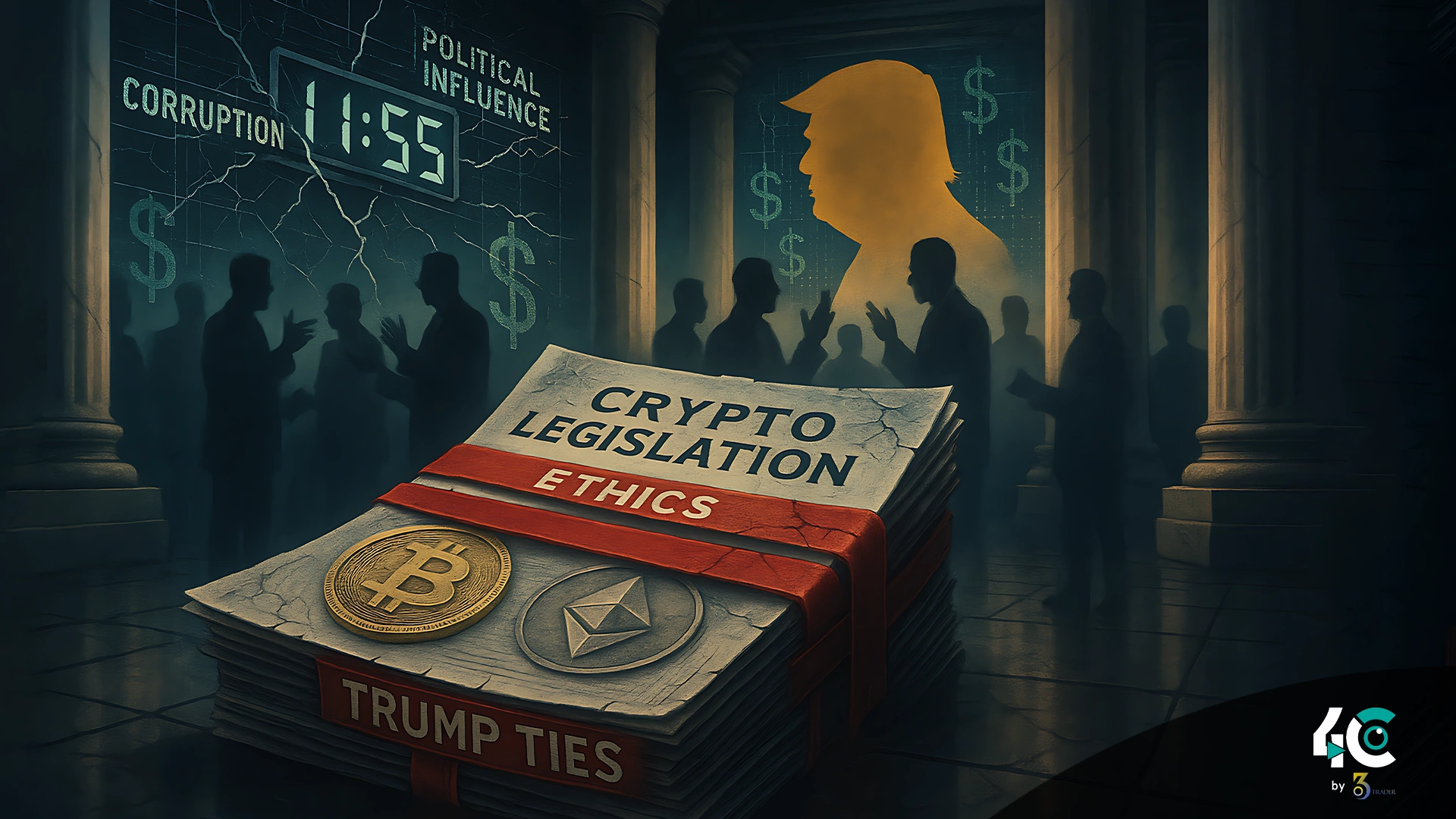As ethical concerns over President Trump’s crypto ventures stall key legislation, U.S. efforts to regulate cryptocurrencies have encountered a roadblock.
Stablecoin Regulation Efforts Stall Amid Ethical Scrutiny
Efforts to pass landmark stablecoin regulation in the United States are reportedly in trouble as the GENIUS Act is facing strong headwinds in the Senate. The controversy arises from concerns that Donald Trump could profit more from cryptocurrency, which raises ethical issues for Congress and the legislation being considered.
The matter heated up after World Liberty Financial (WLFI), the crypto company tied to Trump, and MGX, the fund backed by the UAE, signed a $2 billion deal. The arrangement would direct money into Binance through WLFI’s USD1 stablecoin, already raising possible concerns about conflicts of interest, self-dealing and foreign influence. Lawmakers fear these arrangements could allow public officials and people close to them to profit financially from decisions they influence.
Trump’s Growing Crypto Portfolio Sparks Bipartisan Unease
Trump has led the crypto space into a higher spotlight after taking an interest in it. His recent fundraising events, including one for his memecoin TRUMP holders, have got observers taking stock of what’s already shaping up to be a solid portfolio of meme coins and WLFI. These moves have spurred bipartisan discomfort, as critics regard the current form of the GENIUS Act as failing to provide sufficient safeguards against corruption or other undue influence.
In opposing the bill, Elizabeth Warren has taken the lead as a critic of the crypto industry. She is calling for an ethics probe and sending a memo to colleagues urging them to require officials and their relatives to be prohibited from holding or benefiting from any digital assets. Senator Jeff Merkley expressed concern over the issue as well. He introduced the End Crypto Corruption Act, which seeks to bar officials from profiting from crypto.
Political Gridlock Threatens Progress
Some Republican senators are open to introducing changes to the legislation to address ethical issues. However, infighting among the Republicans, as well as growing opposition from Democrats, could derail the progress of the bill. A procedural vote likely to happen very soon will need 60 votes to advance, which now seems doubtful because of the greater.
The impasse extends beyond the Senate. In the House, Rep. Maxine Waters says that she will block a joint hearing on digital assets. By rushing the legislation, Waters and other lawmakers warn of enabling a loss of trust from the public and allowing the use of political power in digital finance.
Industry Urges Action Despite Political Deadlock
Lobbyists for the crypto industry are pushing Congress on stablecoin regulation despite the gridlock. It is critical to have a regulatory framework to foster innovation, ensure market stability, and guarantee the dominance of the U.S. dollar in the digital economy globally.
An industry representative claims that the lack of regulations creates uncertainty for businesses. We need a plan that keeps both worry-free and their growth in mind.
Uncertain Future for Stablecoin Legislation
Due to ethical issues and political fighting, stablecoin legislation isn’t likely to move forward anytime soon. Here’s a possible paraphrase of your sentence:
The need for regulation is something almost every lawmaker agrees on. However, adding stablecoins to the oversight has complicated an already fraught matter. This complication arises from the overlap with Trump’s financial interests.
The delays highlight the difficulty in regulating new technologies in an incredibly polarized political environment, as the debates continue. If meaningful reforms to address specific concerns around stablecoins do not take place, it is likely that the legislation will get sidelined.
In the coming weeks, we will see whether Congress “tries to work through these issues or whether stablecoin regulation will remain mired in the controversy.”



























